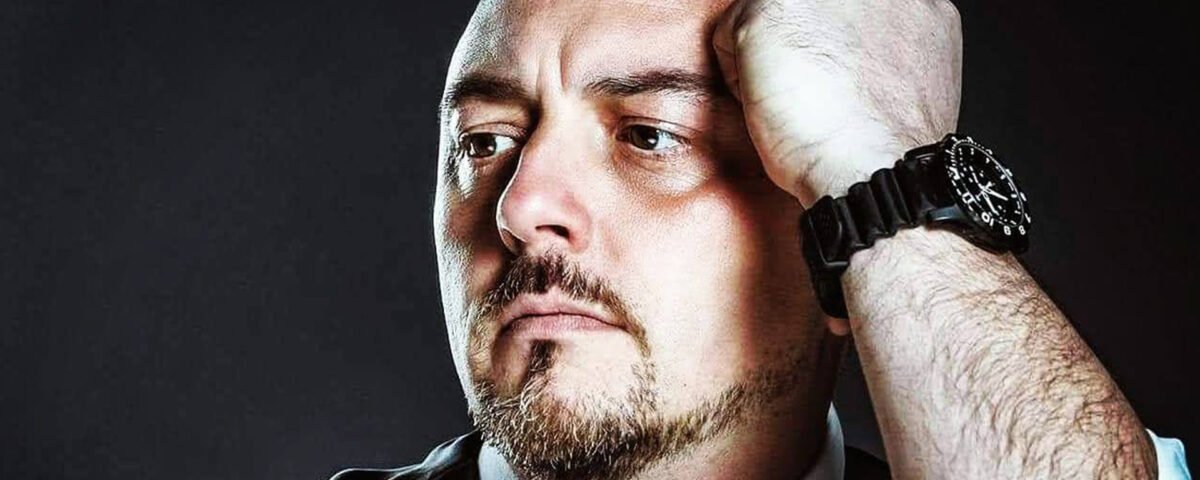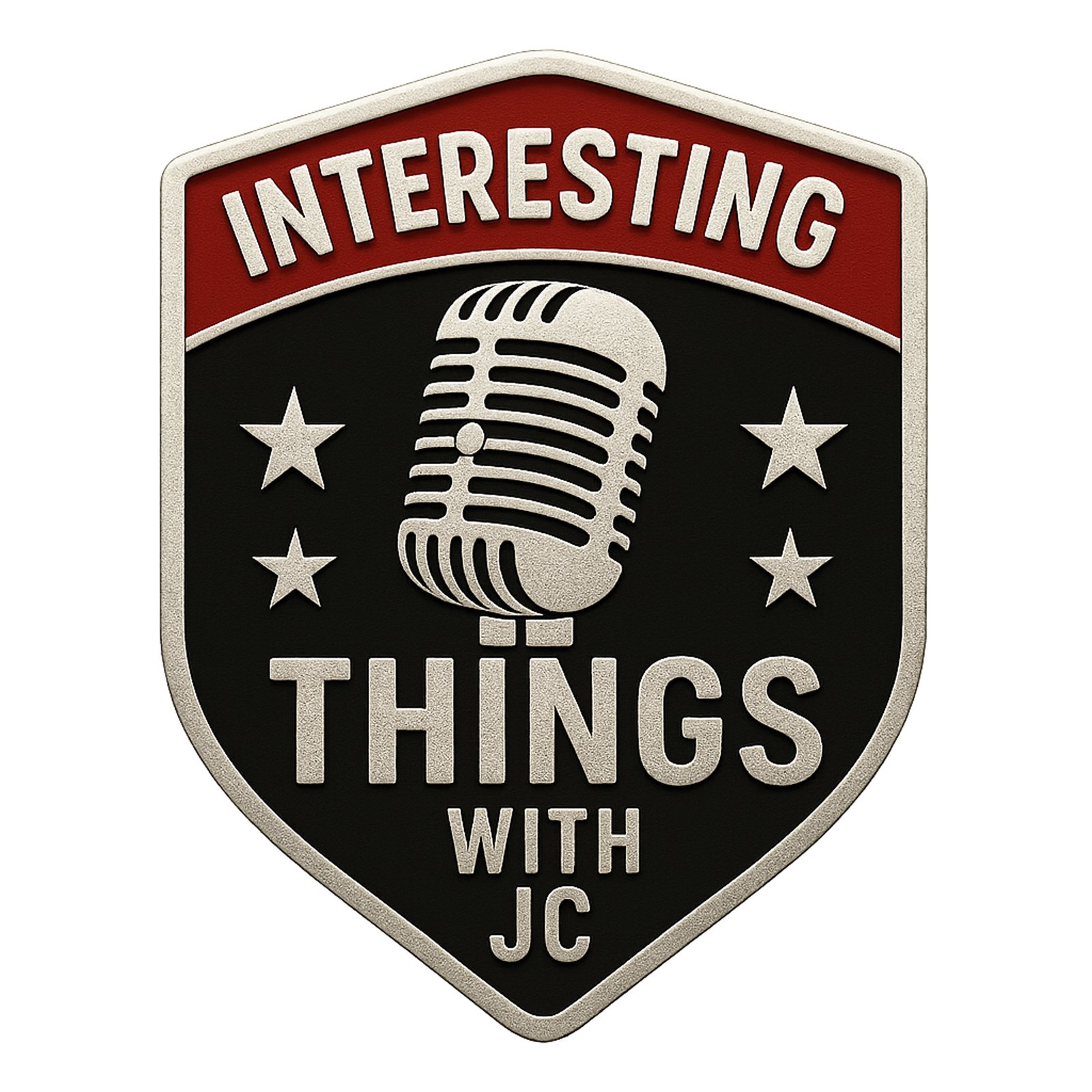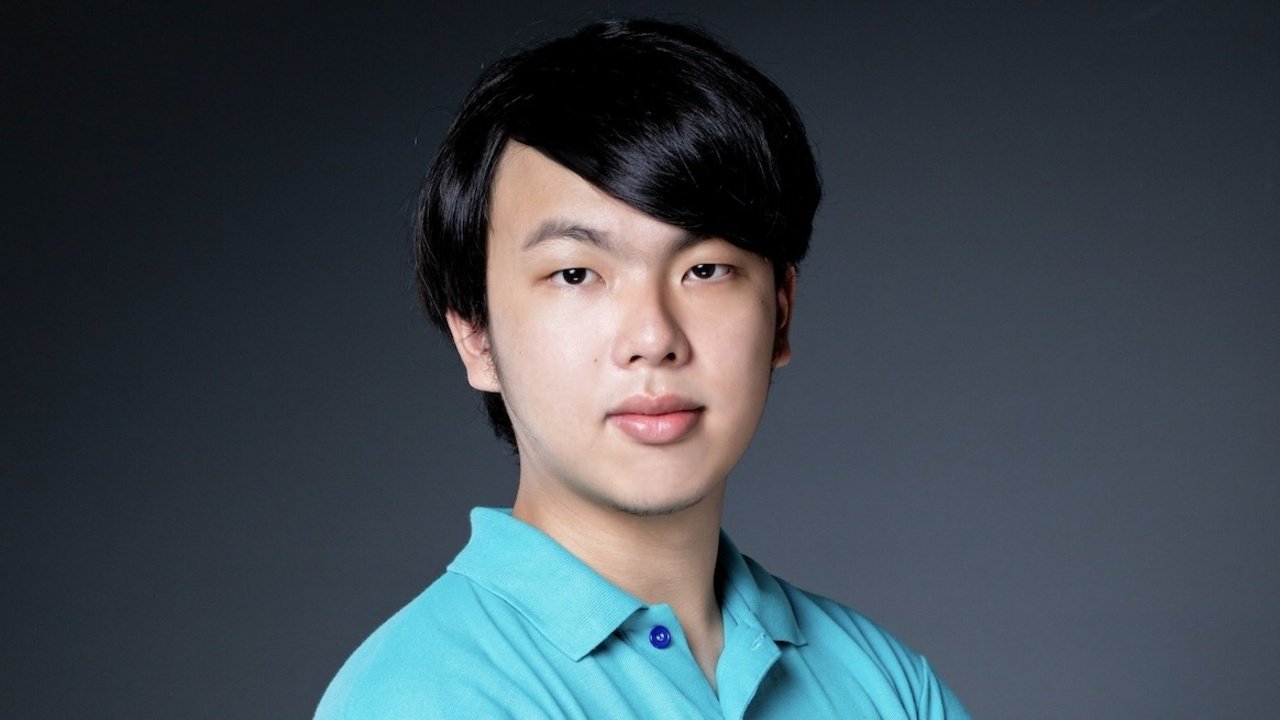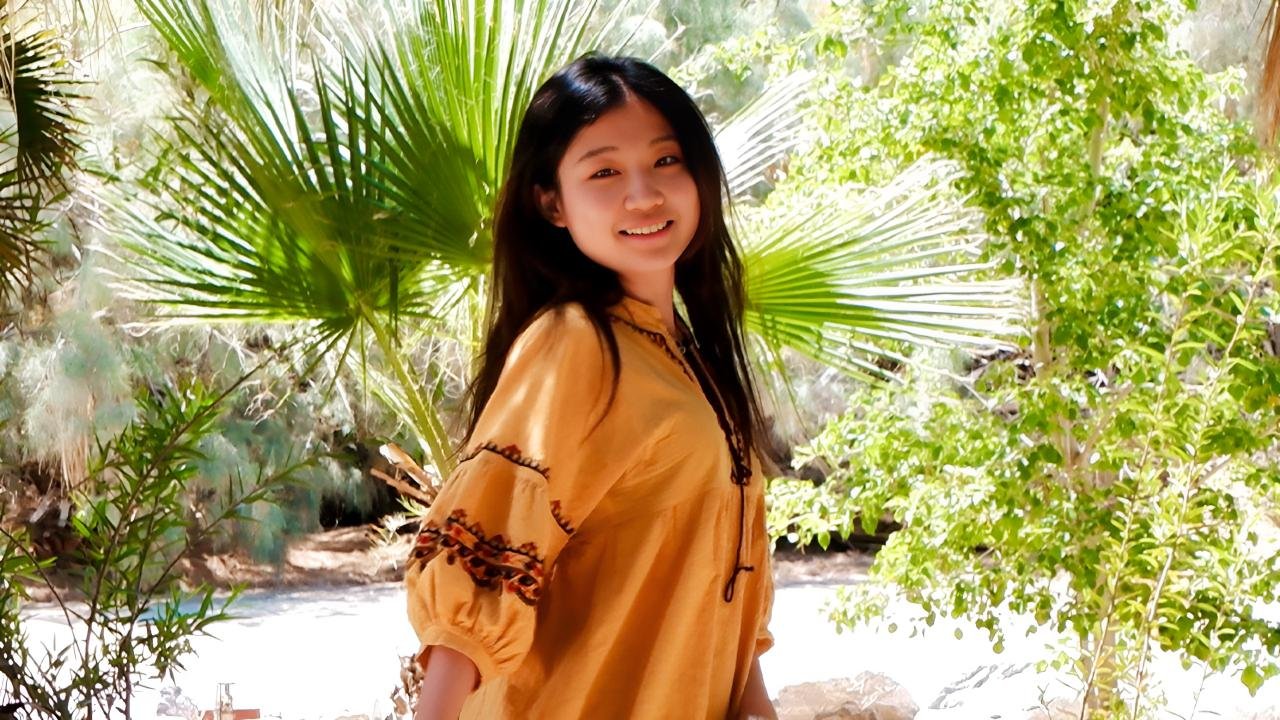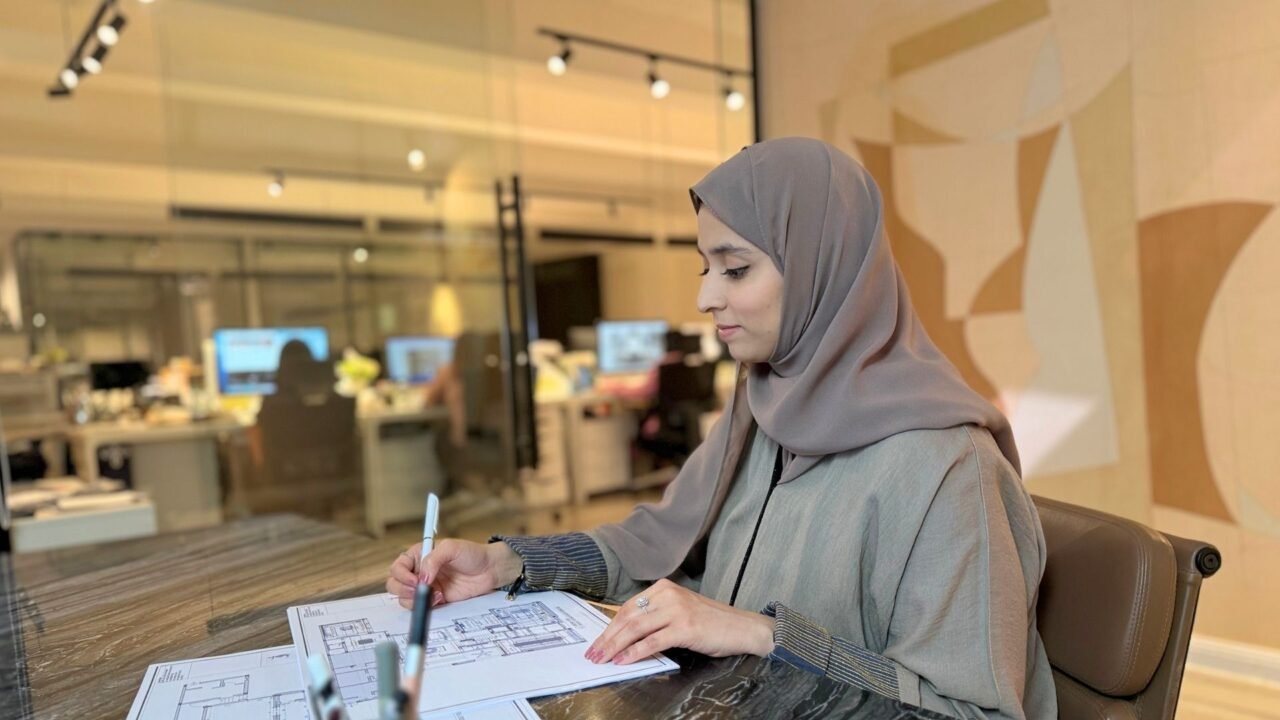1Congratulations on your achievements in the MUSE Creative Awards! Could you start by introducing yourself or your agency? Can you also share a bit about your journey into your current industry?
Hey, I’m JC, the voice behind Interesting Things with JC. I write it, record it, edit it, and release it every day. I’ve been in broadcasting for years—from radio studios to running television stations, and even working overseas on custom television systems.
The show is built on a simple idea: tell real stories in just a few minutes, spark curiosity, and give people something worth thinking about. I’ve always believed learning should never stop, and this podcast is how I keep that mission alive.
2What inspired you to submit your work for this competition, and what does winning mean to you personally and professionally?
Honestly, I entered because I needed to know if the work was really holding up. I’ve been producing this show independently for a long time, and the MUSE Creative Awards have a solid reputation. I thought maybe I had something, but I wasn’t sure.
Winning Gold hit hard—in the best way. It confirmed that what I’m building, day by day, actually matters. Personally, it felt like proof that the sacrifice was worth it. Professionally, it gives this show weight and momentum. Hopefully, it will help me reach the next step: syndication, a wider audience, and bigger conversations.
3Can you share the story behind your success? What inspired its creation, and what do you feel it represents in today’s industry?
This all started after the pandemic changed how people listen. I had a longform show before this, but I noticed a shift—people wanted shorter, sharper stories. So, I leaned into that and built Interesting Things.
I drew from my background in radio and public television, took inspiration from old-school audio storytelling like Paul Harvey, and went all in on making something that respected the listener’s time. In a world full of AI voices and copycat podcasts, I wanted to keep things human. It’s not just about facts; it’s about connection, curiosity, and bringing attention to stories that usually get overlooked.
4What do you believe set your project apart in such a competitive field? Were there specific elements or strategies that made it shine?
The truth? I had no idea if I even stood out. I knew the content was solid, and I knew I was putting in the work, but when you’re doing it all yourself, it’s hard to know how it compares. Winning Gold told me it’s not just good—it’s working. What makes this show different is the consistency, the research, and the trust I’ve built with my listeners. I’m not riding trends; I’m building something that lasts.
5Every project has its challenges. Can you share a significant obstacle you faced during this process and how you overcame it?
The biggest challenge? Showing up every single day. I’ve released one episode a day for over 1,250 days straight—no missed uploads, no filler content. That kind of streak only works if you’re locked in with a purpose. Some days I’m tired, some days life gets heavy, but the mission keeps me going. I made a promise to the audience and to myself, and I stick to it.
6Winning an award of this caliber often brings recognition. What do you hope this achievement will mean for your career, your team, or your agency in the long run? Have you already noticed any changes or opportunities arising from this recognition?
It’s already opened doors. People pay attention when they see the award logo next to your work. My hope is that it keeps building momentum toward syndication and deeper partnerships. I’d love for someone out there to say, “Let’s help bring this to the next level.”
Whether that means more platforms, educational use, or collaborations, I’m wide open. Long term, I also want this to highlight not just the show, but what I bring to the table—someone who can build, lead, and support others doing creative work with heart.
7What has the reaction been from clients, audiences, or stakeholders about your winning entry? Any feedback or memorable moments that stand out?
When I told the people closest to me, there were real tears—tears of joy, but also of understanding. They knew the sacrifice and commitment it took to come this far alone. The reaction wasn’t about flash or celebration; it was about the road it took to get here: long hours, quiet work, and a lot of faith. That moment reminded me why I do this, and who I do it for. It wasn’t just a win for me—it felt like a win for everyone who’s believed in this project from the start.
8For those aspiring to achieve similar success, what advice would you offer to help them not only thrive in their industries but also craft compelling, award-worthy entries? Are there specific practices, mindsets, or strategies you believe are key?
Consistency over perfection. Do the work every day. Build your voice. Tell the truth. Take risks. Don’t wait for someone to say you’re good enough, put the work out there and let it speak. And when you enter competitions, don’t write what you think judges want to hear. Be real. Tell them what you did, why you did it, and what it means to you. That honesty stands out. And remember, if something doesn’t go right, improvise, adapt, and overcome.
9The creative industry is constantly evolving. How do you view these changes, and where do you hope to position yourself in the future?
I want to stay right on the tip of the damn spear. This space changes fast, but the heart of it, storytelling, connection, truth, that stays the same. I’m setting my own bar. I’ve seen my stories reach people who go on to share or build off them. That’s the ripple effect.
But with every leap forward, I try to take one step back to reflect. There’s value in remembering where all this came from, radio, film, public media, and in honoring the people who paved the way. The more we evolve, the more we need to stay human. That’s where I’m focused.
10Entering awards can be daunting for many, especially those just starting out. What would you say to individuals who have limited experience, or are hesitant to showcase their work in competitions? How can they build confidence and see the value in participating?
You don’t need anyone’s permission to bet on yourself. I didn’t know if I belonged either, but I did it anyway. You build confidence by showing up, even when you’re unsure. Just start. Learn by doing. Talk about your work with honesty. The rest takes care of itself. And yeah, it’s intimidating. But that’s also what makes it worth doing.
11Creativity thrives on community. What message would you like to share with fellow creatives, marketers, and advertising professionals?
I’d love to get to know you. I’m an unsigned voice, a free agent in the industry who left the game for a while and is now building his way back, one project at a time. If you’re a creative, marketer, or someone looking to collaborate, I’m open. Whether it’s freelance work, production support, or new ideas, let’s connect. I’m here to build real relationships with people who care about the work.
12Winning is a team effort in many cases. Is there someone or a group of people you’d like to dedicate this achievement to, and why?
Huge thanks to the team at Podcast Radio for giving me a real shot and putting the show on air. To my independent clients for trusting me with their projects. To my family for encouraging me to start this and always telling me not to stop. To my buddy Dave, who has listened to every single episode. And to my old friend Rob, who pushed me to get going when I wasn’t sure I could. This win is for all of them.
13If you could describe your award-winning entry in one sentence, what would it be and why?
It’s a one-man mission to bring real stories back to the world, one day at a time—built on consistency, curiosity, and the belief that learning should never stop.
14Finally, what’s next for you? Any exciting projects or upcoming goals that you’d like to share with us and the audience?
Another day, another episode—that’s the rhythm. The next big goal is syndication: getting Interesting Things with JC on more airwaves and into more classrooms. I’m also expanding the educational side of the show.
Every episode now includes a free curriculum component aligned with U.S. and international standards, so teachers can use it right away. I want to go further—build more free resources and help educators bring real, meaningful content into their classrooms without any roadblocks.



